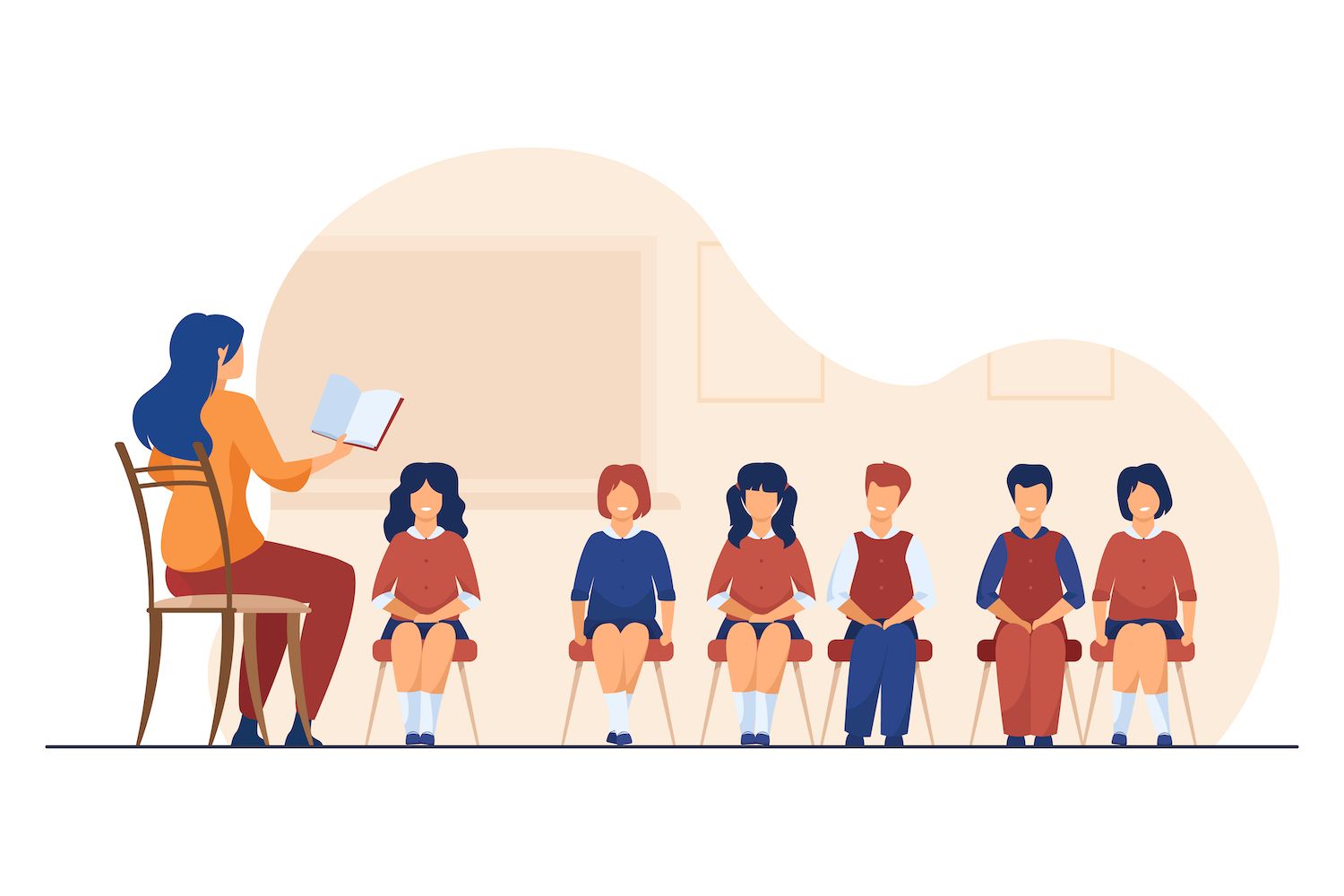How to Use the Psychology of Selling to Sell online
92% of individuals are likely to trust recommendations from someone they know - but 70% of people will trust a recommendation from someone they have no relationship with in any way.
Social proof is one method by which companies can establish trust with the people they want to appeal to. If you are able to tap into this crucial concept within the psychology of selling you will have a guide of how customers might think, make decisions and calculate the risk and reward for every purchase.
This is what you have to know about sales psychology - and 6 key principles to help you make more sales.
Use the links below to go ahead
- What is the psychology behind selling and why is it important?
- Why you should be using psychological sales techniques
- Top six sales psychology theories and ways you can apply them
- Authority
- Social proof
- Scarcity
- Reciprocity
- Consolidity and commitment
- Liking
- 4 principles of selling decision making
- Five expert suggestions for how to master sales psychology
What's the psychology of selling? And why is it crucial?
The term is popularized by Dr. Robert Ciadlini in his bestselling book Influence, the psychology behind selling is the application of psychological theories to tap into the needs and desires of your intended customers to promote your goods and services.
Instead of explaining to your customers what they ought to purchase and how to sell it, selling psychology is about understanding people's requirements, desires and anxieties and connecting with the emotional side of them so that they are enticed to make a purchase.
What are the reasons to make use of psychology in sales
One of the largest mistakes inexperienced sales professionals do is to try and convince people to purchase something by focussing on the product as well as the business and cost.
According to Moeed Amin founder and director of The Proverbial Door explains, people fall into the habit of thinking about their own needs - rather than putting the buyer prior to the customer.

After completing his diploma with a degree in Neuroscience, Moeed Amin was having a hard time achieving success at the sales position he held. The situation changed once Moeed realized that the method used by him wasn't gaining an understanding of the mindset of buyers. He reworked his technique and rooted his selling strategies on the psychological aspects of selling.
Moeed currently teaches entrepreneurs on how to utilize sales psychology to boost their sales. What is his take on sales psychology? It's about selling without compromising your integrity, understanding the needs of your emotional person you're selling to as well as helping them fulfill their deepest desires.
When it is done right, the psychology of selling turns your sales technique into a pleasant, nurturing experience , rather than one that makes your potential customers feeling cold.
Here are the top methods you can employ to increase sales and make your customers feel good.
Top sales psychology principles and the best ways you can apply them
Anybody can benefit from the science of selling to sell more. If you're looking to make more business, grow your revenue and grow your business, here are 6 key sales psychology ideas you ought to be aware of.
Authority
Experts are trusted by people. Selling calls are based on is based on the concept of authority. The idea is simple that if you are able to establish yourself as an expert within your field, then people will be more inclined to purchase from you.
Your reputation can be used to immediately establish a sense of trust, confidence and trustworthiness in your conversations with prospective customers. If they've already heard of your company, they're more inclined to be interested in what you've got to say.
- Building your social media following
- Publishing free sources
- Guest features on podcasts, blogs, publications and much more
Content is a key tool to build your authority in your niche to increase sales.
Social evidence
The pull of a crowd can be a strong motivational factor. In the psychology of selling social proof leverages the influence of others to market your goods in your place. If you can show the number of people who are enthusiastically enjoying your product or service, you can encourage new clients to join in.
Social proof can comprise:
- Reviews from customers
- Testimonials from users
- Statistics for signing up
- Social shares of media
These tools all lend your company credibility. In the end, if users are already loving your products, why shouldn't your prospective customers also?
Take a look at this illustration from the the creator Ashley Warren who founded the Storytelling Collective. Ashley's site uses social proof all over to help encourage users to subscribe to her mailing list and to join her community.

Scarcity
Although people love to be aware the other buyers are also buying the same thing, there's a flip side too. In the psychology of selling the concept of scarcity is a really effective tool to boost your sales.
The concept of scarcity is that the smaller amount of something that it's more likely to be sought-after by those who desire the item. Limited editions, limited time limited offers, or even a handful of things left are just a few ways to will make customers hungry to purchase what you're offering.
This impression of scarcity causes a spike in demand by giving a feeling of urgency and exclusivity. If people feel that the item is going to sell out, they're inclined to purchase it immediately. No time to delay!
Reciprocity
When someone gives you a gift, you're more likely to offer them one back at some point in the future. This is a social bias that means people tend to reward a positive act with another positive behavior. When it comes to sales psychology, you can benefit from this positive principle.
If you offer prospective customers something, they'll usually be eager to pay you back. When it comes to sales, that might be the thing that gets people to purchase.
The principle of reciprocity to refer to free trials, free gift cards and other bonuses including a one-on-one telephone call, or free downloadable resources. Make a connection with potential clients and then watch them reciprocate down the line.

The best way to use reciprocity is most effectively when you change the offers you give prospective customers. If, for instance, you offer them a 1-week free trial, next time, you can offer your customers a complimentary workbook or template. When you next meet, give an opportunity for a complimentary consultation, in the last step to closing the sale.
Consistency and commitment
In the field of sales psychology, there's the notion that people like to stick with what they've stated or done. If they've taken a choice, they usually run with that decision instead of switching to a different choice, regardless of whether or not it's the best option for their needs. We're creatures of habit.
If you're trying to market potential customers You can try playing using the idea of commitment and consistency. Making potential clients make a commitment to just a single action can boost the likely that they'll follow all the way to the near future.
For example, an interactive quiz can be a very efficient way of getting customers to say yes. When it comes to quizzes the people are enticed to take part in a set of questions and receive useful information to return. They're willing to learn some of your expertise - and they're more likely to keep the promise and purchase something from you in the near future.
Liking
As humans, we're much more likely to buy from someone we love rather than someone who doesn't. Sounds simple right? If you think about selling's psychology the idea of liking is an incredibly simple one. It is accessible to anyone who wants to tap into the concept of liking.
If you are able to get the customers you're targeting to be a fan of you, there's a much higher chance they'll buy something at your store.
Liking could be a reference to various positive characteristics, such as:
- Credibility
- Attractiveness
- Intelligence
- Being complimented
- Common interests, values, and goals
Brands regularly use the theory of liking to determine their social media strategies. Rather than coming across as unassuming, faceless companies They work tirelessly to foster a sense of credibility, trust and common values through social media.

4 principles of the sales process that influence decision-making
In order to make the most of the psychology behind selling Moeed says sellers should appreciate the 4 factors of decision-making that each buyer must go through. Here are the steps you should know.
Calculating and evaluating external information
Every buyer begins their buying process by studying and assessing information about your products and the company you represent. This might include reviewing customer feedback, talking to friends, checking out suggestions from influencers, and everything in between.
The majority of people make a decision based on the degree to which they believe in the information source. Utilizing the psychology of selling, you will be able to provide your buyers with all the data they require to make a decision. Establishing authority within your field and using social proof two methods you could employ to leave a lasting impression.
Assess gains and losses
Next, there is a unconscious calculation, namely what the purchaser get and lose from this purchase?
Customers who are considering buying something will evaluate the possible risks associated with making a purchase. Think of it like an enumeration of pros and cons. There are risks of the loss of funds, your precious time, as well as losing the face of your customer. If your purchaser believes the risks are too high, they won't decide to purchase.
It's up to you to confront those concerns and potential losses and demonstrate to prospective customers that they're safe.
Plan implementation
The buyers' decision-making process will be to imagine their lives after making a purchase. What are they expecting from the experience of using your service or product?
If you're pursuing a potential customer thinking about signing up for an online class, such as, for instance, the to implement the course could include thinking about what the course or program could be in. What format would the material take? What are some examples of your group meetings? How often will they get to meet with you?
It is your responsibility to supply the details your customer needs to make a decision. Your potential customer might also need access to your products or service in order to experience how it works by way of a free trial, demo or webcast.
The next phase is about understanding: How does the product or service I am considering becoming an integral part of my daily living?
The pursuit of the objective
If all goes well the buyer will follow all the necessary steps to create the dream come true through purchases. It is your job to assist your client make a purchase and ensure your process runs as smooth as possible. This includes giving them any important information that they may require, or even an incentive to help them cross the line like a discount voucher or code.
Five expert suggestions on learning how to master the art of sales psychology
If you've learned the most important principles that govern the psychology of selling, here are 5 expert tips to help you perfect the technique you use and achieve your sales goals.
Learn about your customers
You think you are knowledgeable enough about your clients already? There isn't any.
The main ingredient in any successful sales technique is customer research. It is essential to understand whom your buyers are, what drives them and what they want in order to know how to sell to them. Before doing anything else, you must research!
As well as talking to your existing customers, you can also ask the people who didn't buy from you as well. They went through your selling process but did not make purchases. There is a reason what the reasons.
Learn more about:
- Why did they choose that your service or product wasn't for they?
- What were the barriers in their purchase?
- Where did they get the information they needed? Which sources?
- What or whom did they get their goods from?
Utilize call surveys at the end of the sales cycle, exit surveys and phone interviews to discover exactly what went wrong and the areas you can do to ensure that the sales process you use is secure.
Design a perfect image for your customers
To make the most of the core principles of the psychology of selling, it is essential to put your client's needs at the forefront. What are the biggest problems they're experiencing right now? Make an avatar that speaks close to your client's worries and requirements.
Write down how your product or service will address those pain points. What benefits will the customer get from the purchase? How will it help solve their most critical problems?
According to Moeed says, the majority of people seek to feel a sense of satisfaction from the purchase. This could mean peace of mind, confidence or any other. If you're an instructor training people to be entrepreneurs, think about the identity that your ideal buyer will gain. What does it feel as an business owner? It's not about giving them the resources to understand how to earn money, but you're helping them establish an entire sense of identity.
It's one of the main reasons that influencer marketing is so popular - influencers portray the ideal image that consumers want to own.
Thank your purchasers for their feelings
A successful salesperson means appreciating the emotions behind every buyers' decision-making procedure.
Evan Santa is the Vice President of Sales at CommerceBear. As Evan says, "Buying anything is extremely emotionally charged. The majority of us are taught at a very young age about the value of money, and how we can earn, invest and safeguard it. Successful salespeople do not underestimate their importance, nor do they overlook the emotional impact in all transactions."

If you're developing the sales strategy you are using, be certain that you always put your buyer first. Selling isn't just about what your customer does to you, but instead what you can do for the customers you serve.
According to Evan states, you must to "start from the very first contact. Put yourself in your buyer's in their shoes. Consider how this interaction could impact you. ."
The psychology behind selling is all about understanding the emotional reasons behind the purchase and connecting with the customers' emotions to assist them make informed decisions.
Address their fears
Customers begin and end their day thinking about the potential losses that they could incur when making purchases. They might worry about costs, risk, the chance of not achieving what they'd like to achieve. The decision to buy is based on the fear of getting let by the results.
Moeed suggests tackling the fear head-on - for example saying in the sales call:
"Typically when people are thinking about working with me, what they're anxious about is xyz. do you feel that way too? Can you share more details?"
Focus on the impact of your item or service to reduce the perceived risks to the customer. Evan states, " No decision will be made, when the confidence to make the decision isn't there."
If you ask prospective customers directly what is worrying them, you can make a quick connection with them. The customer will feel understood and you can make steps to resolve their issues, for example, by giving them more details about the product or by offering a free trial or walkthrough.
If you don't address those fears, they won't buy from you.
Make sure your messages are simple
The psychological aspects of selling to improve every element of your advertising or sales funnel. That includes landing pages, emails, videos, and many more.
Moeed suggests keeping your messages as easy as you can. "The more energy you're asking them to use, the more you're asking someone to think and think about, the greater chance they are going to get bored and disinterested."
His method is to think in 3s - what are the 3 items you would like your viewers to come away knowing?
If you can distill your messaging down into a handful of key concepts, you can convey this information with greater ease for potential clients. Provide them with the information they need, when they need it.
Ready to use the power of psychology to sell your business?
Anyone can be taught to apply the fundamental principles of the psychology of selling. From social proof , reciprocity to scarcity, these theories are deceptively simple but hugely effective. If you are able to tap into the needs and wants of your customers, then you are able to watch your company grow and expand.
To start creating your online course company right now, take a free trial.
